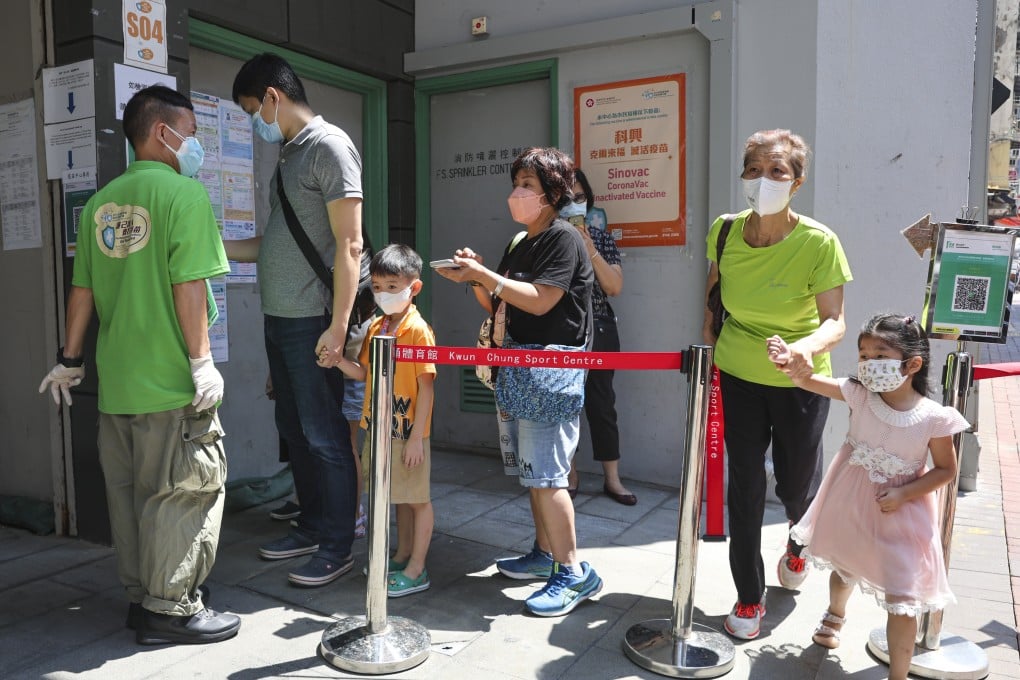Coronavirus: current Covid surge in Hong Kong likely to peak this month with no more than 20,000 cases a day, pandemic adviser says
- Professor David Hui urges parents to get their children inoculated, citing studies overseas indicating doses are safe
- He suggests possibility of ‘3+4’ quarantine scheme for overseas arrivals to be eased to ‘0+7’ format in November if conditions are ideal

Professor David Hui Shu-cheong on Saturday said a continuous rise in daily caseloads was expected as the virus’ reproductive rate remained above 1.3, meaning a patient would infect more than one person. The rate stood at 1.44 last week.
The city reported 10,426 new cases on Saturday, including 204 imported infections, and seven more deaths.
But Hui predicted the current wave, fuelled by the more transmissive Omicron BA.5 subvariant, would peak this month, with a greatly improved situation by November if vaccination rates could be raised further.
“If the BA.5 wave peaks in September and then drops, the vaccination rate keeps rising, and there are still more cases of mild symptoms and few of severe symptoms and deaths, then we will have the conditions to reopen gradually,” Hui said.